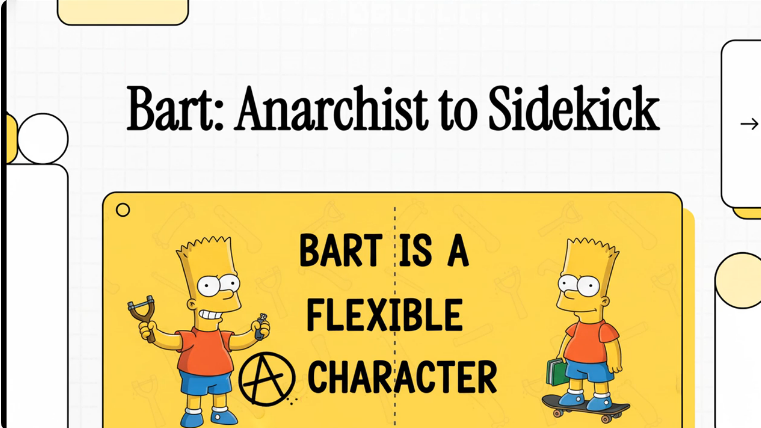Google is accelerating the expansion of capabilities for its AI tool NotebookLM. The latest update shows that users can now use any text prompt to generate video summaries, no longer limited to a pre-set list of styles. This means that NotebookLM can create content in almost any visual language—regardless of whether these styles are protected by copyright.
In practical testing, NotebookLM can generate a video in the style of The Simpsons based on simple instructions, accurately presenting character settings and narrative methods. For example, when asked to create a video titled "Would Bart Simpson care about AI copyright issues," NotebookLM almost perfectly replicated the visual and narrative style of this animation.

However, what is more noteworthy is the way the video is presented:
Even though the overall visuals imitate The Simpsons, NotebookLM still adds its own copyright notice in the corner of the video, as if formally declaring that the content belongs to its model-generated results. This behavior creates a subtle conflict visually and naturally raises discussions on copyright issues.
When the content style is highly similar to works under Disney's portfolio, NotebookLM's copyright notice appears both cautious and ambiguous:
It neither explicitly acknowledges the use of copyrighted style materials nor avoids the potential infringement risks in the resulting creation.
Industry insiders believe that following past strategies, Google may continue to take a "light-handed" approach to AI content regulation, including:
Implementing symbolic restrictive measures;
Reaching licensing agreements with certain content providers when copyright disputes escalate;
Or temporarily maintaining an observational stance, waiting for the industry litigation situation to become clear.
However, for Disney, the copyright holder of The Simpsons, the situation may be more sensitive. As one of the most powerful intellectual property enforcers globally, Disney rarely tolerates external companies playing "close to the edge" on its core IP. If NotebookLM's content generation capabilities continue to approach these copyright boundaries, related legal disputes may arise earlier than expected.









